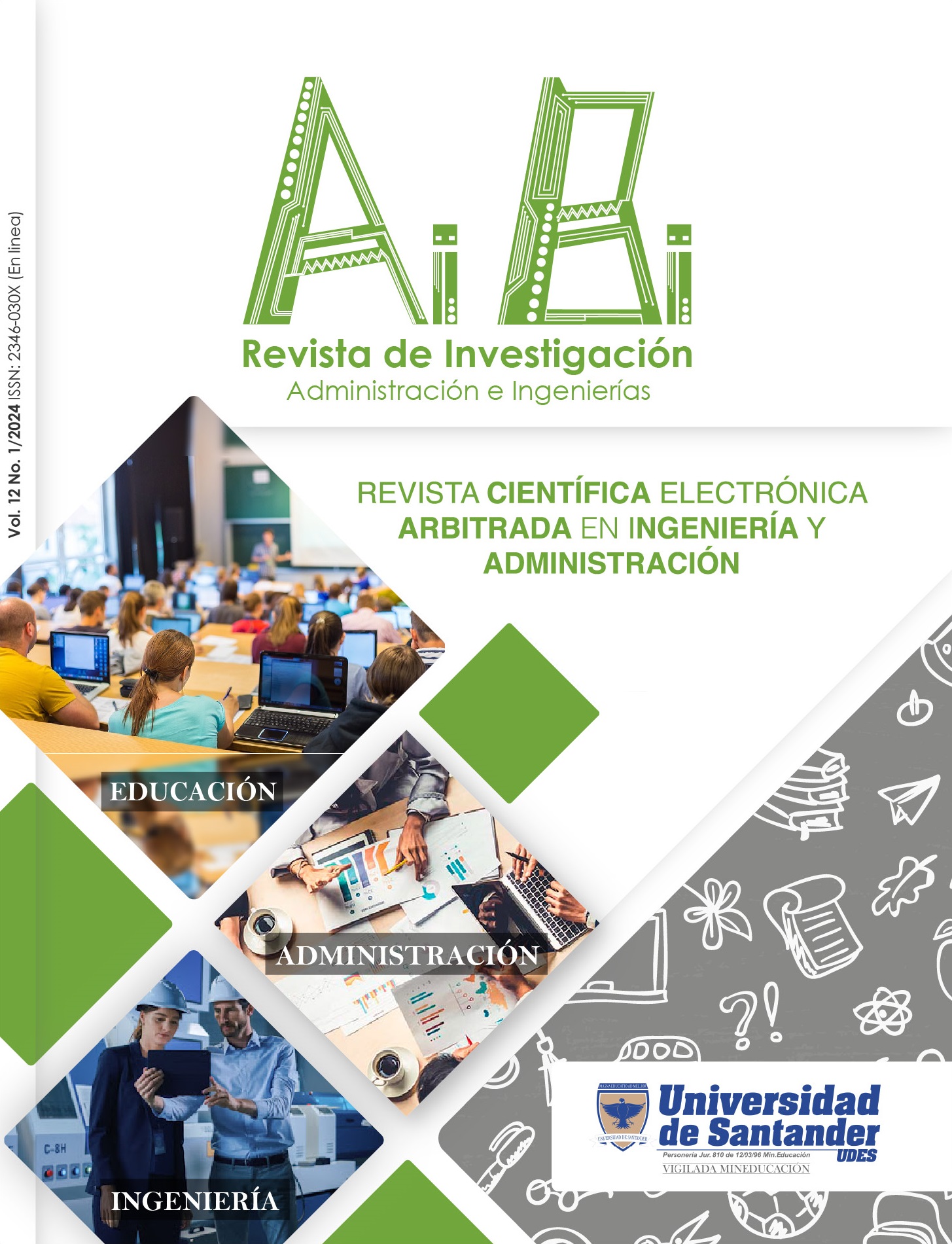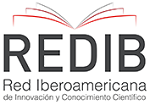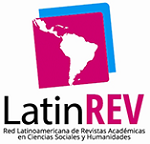Discusiones y aplicaciones de la cultura organizacional en contextos de teletrabajo
DOI:
https://doi.org/10.15649/2346030X.3306Palabras clave:
Digitalización, Cultura Organizacional, Interacción Social, Teletrabajo, VirtualidadResumen
Este artículo tiene como objetivo reflexionar sobre las implicaciones para la investigación y la intervención en la cultura organizacional en contextos de teletrabajo. La cultura organizacional debe abordar cuestiones relacionadas con las tareas y el logro de objetivos dentro de la dinámica del trabajo individual, considerando los procesos de simbolización en el mundo laboral. Además, debe ampliar los marcos analíticos para tener en cuenta las complejidades de las relaciones virtuales. La reflexión se basó en una síntesis cualitativa de los resultados de dos tesis de maestría. Una tesis se centró en la cultura organizacional, mientras que la otra examinó el teletrabajo. Esta síntesis cualitativa se centró en cuatro aspectos fundamentales: a) los cambios que puede experimentar la cultura organizacional cuando las personas cambian su lugar de trabajo, b) los cambios resultantes de las alteraciones en las horas de trabajo, c) los cambios comunicativos que ocurren en estos nuevos contextos, y d) los cambios culturales que pueden surgir a partir de alterar las relaciones contractuales en entornos de teletrabajo. Se discutió la existencia de cambios en los preceptos que dan forma a la cultura organizacional debido a la adopción del teletrabajo en la gestión laboral. La digitalización o virtualización del trabajo afecta las interacciones sociales, lo que agrega complejidad a la dinámica de grupo. Esto lleva a la academia a reconsiderar categorías y conceptualizaciones relacionadas con el mundo organizacional.
Referencias
M. Pérez de Paz, “Homo Compensator: le parcours philosophique d’un concept métaphysique,” Mémoire présenté en vue de l’obtention du master philosophie parcours théories pratique et conflit, Universidad de Poitiers, Poitiers, 2016. [Online]. Available: www.doi.org/10.13140/RG.2.2.28294.91209
C. Tello-Castrillón, “El concepto de organización, tan cerca y tan lejos,” in Conjeturas organizacionales: fundamentos para el estudio de la organización, Primera ed.Bogotá: Editorial Universidad Nacional de Colombia, 2018, pp. 79–102.
J. D. Thompson and F. L. Bates, “Technology, Organization, and Administration,” Adm. Sci. Q., vol. 2, no. 3, pp. 325–343, 1957, doi: 10.2307/2391002.
H. A. Simon, “Technology and Environment,” Manag. Sci., vol. 19, no. 10, pp. 1110–1121, Jun. 1973, doi: 10.1287/mnsc.19.10.1110.
J. Torrent i Sellens, “De la Nueva economía a la economía del conocimiento: hacia la tercera revolución industrial,” Rev. Econ. Mund., vol. 7, pp. 39–68, 2002.
J. Restrepo Sarmiento, J. Londoño-Cardozo, and C. Tello Castrillón, “Cultura Organizacional: una revisión de literatura,” in Avances en investigación científica, Primera ed.Cali: Corporación Universitaria Autónoma de Nariño Seccional Cali, 2020, pp. 1145–1180.
S. J. Harrington and C. P. Ruppel, “Telecommuting: a test of trust, competing values, and relative advantage,” IEEE Trans. Prof. Commun., vol. 42, no. 4, pp. 223–239, Dec. 1999, doi: 10.1109/47.807960.
S. J. Harrington and J. Santiago, “Organizational Culture and Telecommuters’ Quality of Work Life and Professional Isolation and Professional Isolatio,” Commun. IIMA Commun. IIM, vol. 6, no. 3, p. 10, 2006.
A. T. Hoang, R. C. Nickerson, P. Beckman, and J. Eng, “Telecommuting and corporate culture: Implications for the mobile enterprise,” Inf. Knowl. Syst. Manag., vol. 7, no. 1,2, pp. 77–97, Jan. 2008.
E. E. Potter, “Telecommuting: The future of work, corporate culture, and American society,” J. Labor Res., vol. 24, no. 1, pp. 73–84, Mar. 2003, doi: 10.1007/s12122-003-1030-1.
W. Maisiri, H. Darwish, and L. van Dyk, “An Investigation of Industry 4.0 Skills Requirements,” South Afr. J. Ind. Eng., vol. 30, no. 3, pp. 90–105, Nov. 2019, doi: 10.7166/30-3-2230.
S. Vaidya, P. Ambad, and S. Bhosle, “Industry 4.0 – A Glimpse,” Procedia Manuf., vol. 20, pp. 233–238, Jan. 2018, doi: 10.1016/j.promfg.2018.02.034.
M. Xu, J. M. David, and S. H. Kim, “The Fourth Industrial Revolution: Opportunities and Challenges,” Int. J. Financ. Res., vol. 9, no. 2, pp. 90–95, 2018, doi: 10.5430/ijfr.v9n2p90.
L. H. Melnyk et al., “The effect of industrial revolutions on the transformation of social and economic systems,” Probl. Perspect. Manag., vol. 17, no. 4, pp. 381–391, 2019, doi: 10.21511/ppm.17(4).2019.31.
U. Al Faruqi, “Future Service in Industry 5.0,” J. Sist. Cerdas, vol. 2, no. 1, pp. 67–79, 2019, doi: 10.37396/jsc.v2i1.21.
V. Özdemir and N. Hekim, “Birth of Industry 5.0: Making Sense of Big Data with Artificial Intelligence, ‘The Internet of Things’ and Next-Generation Technology Policy,” OMICS J. Integr. Biol., vol. 22, no. 1, pp. 65–76, Jan. 2018, doi: 10.1089/omi.2017.0194.
K. S. Cameron and R. E. Quinn, Diagnosing and changing organizational culture: Based on the competing values framework, Third Edition. in Addison-Wesley series on organization development. United States of America: John Wiley & Sons, 2011.
J. Restrepo Sarmiento, “Prácticas organizacionales complementarias al modelo de Cameron y Quinn que facilitan el cambio de la cultura organizacional en una empresa de asesoría financiera latinoamericana,” Tesis de Maestría en Administración, Universidad Nacional de Colombia, Palmira, Valle del Cauca, 2020. [Online]. Available: https://repositorio.unal.edu.co/handle/unal/79010
D. M. Cifuentes Leiton, “Teletrabajo en dos tiempos psicosociales: gobierno, empleadores y teletrabajadores,” Desarro. Gerenc., vol. 12, no. 2, pp. 1–25, 2020, doi: 10.17081/dege.12.2.3913.
M. Bearman and P. Dawson, “Qualitative synthesis and systematic review in health professions education,” Med. Educ., vol. 47, no. 3, pp. 252–260, 2013, doi: 10.1111/medu.12092.
J. Thomas and A. Harden, “Methods for the thematic synthesis of qualitative research in systematic reviews,” BMC Med. Res. Methodol., vol. 8, no. 1, p. 45, Jul. 2008, doi: 10.1186/1471-2288-8-45.
K. Seers, “What is a qualitative synthesis?,” Evid. Based Nurs., vol. 15, no. 4, pp. 101–101, Oct. 2012, doi: 10.1136/ebnurs-2012-100977.
L. A. Chicaíza-Becerra, M. I. Riaño Casallas, S. P. Rojas-Berrio, and C. Garzón Santos, “Revisión sistemática de literatura en Administración.” Facultad de Ciencias Económicas. Centro de Investigaciones para el Desarrollo - CID, Jun. 2017. Accessed: Apr. 30, 2022. [Online]. Available: https://papers.ssrn.com/sol3/papers.cfm?abstract_id=3011931
M. García Molina and L. Chicaíza Becerra, “Guía de fuentes para la investigación en Ciencias Económicas.” Facultad de Ciencias Económicas. Centro de Investigaciones para el Desarrollo - CID, Feb. 21, 2011. [Online]. Available: http://dx.doi.org/10.2139/ssrn.1766062
D. Tranfield, D. Denyer, and P. Smart, “Towards a Methodology for Developing Evidence-Informed Management Knowledge by Means of Systematic Review,” Br. J. Manag., vol. 14, no. 3, pp. 207–222, 2003, doi: 10.1111/1467-8551.00375.
N. A. Webster and Y. Kontkanen, “Space and place in immigrant entrepreneurship literature in the Nordic countries: A systematic literature review,” Nor. Geogr. Tidsskr. - Nor. J. Geogr., vol. 75, no. 4, pp. 221–236, Aug. 2021, doi: 10.1080/00291951.2021.1949746.
M. J. Hatch, “The Dynamics of Organizational Culture,” Acad. Manage. Rev., vol. 18, no. 4, pp. 657–693, Oct. 1993, doi: 10.5465/amr.1993.9402210154.
M. J. Hatch, “Organizational culture,” in Organization theory: Modern, symbolic, and postmodern perspectives, Third Edition.Great Britain: Oxford University Press, 2013.
D. Meyerson and J. Martin, “Cultural Change: An Integration of Three Different Views,” J. Manag. Stud., vol. 24, no. 6, pp. 623–647, 1987, doi: 10.1111/j.1467-6486.1987.tb00466.x.
Y. B. Ruiz and J. C. Naranjo, “La investigación sobre cultura organizacional en Colombia: una mirada desde la difusión en revistas científicas,” Divers. Perspect. En Psicol., vol. 8, no. 2, pp. 285–307, 2012.
C. F. Fey and D. R. Denison, “Organizational culture and effectiveness: can American theory be applied in Russia?,” Organ. Sci., vol. 14, no. 6, pp. 686–706, 2003, doi: 10.1287/orsc.14.6.686.24868.
C. A. O’Reilly, J. Chatman, and D. F. Caldwell, “People and organizational culture: a profile comparison approach to assessing person-organization fit,” Acad. Manage. J., vol. 34, no. 3, pp. 487–516, Sep. 1991, doi: 10.5465/256404.
G. Hofstede, “Attitudes, Values and Organizational Culture: Disentangling the Concepts,” Organ. Stud., vol. 19, no. 3, pp. 477–493, May 1998, doi: 10.1177/017084069801900305.
P. López-Igual and P. Rodríguez-Modroño, “Who is Teleworking and Where from? Exploring the Main Determinants of Telework in Europe,” Sustainability, vol. 12, no. 21, Art. no. 21, Jan. 2020, doi: 10.3390/su12218797.
U. Huws, W. . B. Korte, and S. Robinson, Telework: Towards the Elusive Office. in John Wiley Series in Information Systems. Wiley, 1992.
Organización Internacional de Trabajo, “Tesauro de la OIT (Biblioteca de la OIT),” 2008. https://www.ilo.org/inform/online-information-resources/terminology/thesaurus/lang--es/index.htm (accessed May 05, 2017).
Congreso de la República de Colombia, Ley 1221. 2008. [Online]. Available: http://www.secretariasenado.gov.co/senado/basedoc/ley_1221_2008.html
D. M. Cifuentes Leiton, “Caracterización del teletrabajo desde versiones de integrantes del gobierno, empleadores y teletrabajadores: una aproximación psicosocial,” presented at the V Congreso Iberoamericano de Psicología de las Organizaciones y del Trabajo: “Entre lo disciplinar y lo profesional: aciertos y desaciertos de la POT,” Cali, Colombia: Universidad del Valle, 2016.
J. Buira, El teletrabajo. Entre el mito y la realidad, Primera ed., vol. 44. Barcelona: Editorial UOC, 2012.
P. Drucker, La sociedad poscapitalista, Primera ed. Digital. Buenos Aires: Suramericana, 2013.
Z. Bauman and D. Lyon, Vigilancia líquida, Primera ed. España: Paidos, 2013.
Congreso de la República de Colombia, Ley 2088. 2021, p. 6. [Online]. Available: https://genunpal.page.link/VgDw
T. Negri and M. Hardt, La posmodernización o la informatización de la producción, Primera ed. Buenos Aires: Paidós, 2000.
D. M. Cifuentes Leiton and J. Londoño-Cardozo, “Teletrabajo: el problema de la institucionalización,” Aibi Rev. Investig. Adm. E Ing., vol. 8, no. 1, pp. 12–20, 2020, doi: 10.15649/2346030X.749.
J. Sanz Pereda, “Robots industriales colaborativos: una nueva forma de trabajo,” Segur. Salud En El Trab., no. 95, pp. 6–10, 2018.
J. M. Blanch i Ribas, “Psicología Social del trabajo,” in Psicología social aplicada, Primera ed.España: McGraw Hill, 1996, pp. 85–120.
J. L. del Val Román, “Industria 4.0: la transformación digital de la industria,” Conferencia de directores y decanos de Ingeniería Informática, España, 2016. Accessed: Apr. 30, 2022. [Online]. Available: https://genunpal.page.link/69Ve
J. L. del Val Román, “Industria 4.0: la transformación digital de la industria,” Deusto Ingeniería, Mar. 18, 2016. Accessed: Dec. 09, 2020. [Online]. Available: https://revistaingenieria.deusto.es/tag/industria-4-0/
G. Deleuze, Foucault, Primera ed. Barcelona: Paidos, 1987.
G. Deleuze, Deux régimes de fous et autres textes (1975-1995). in Collection Paradoxe. Paris: Deux régimes de fous, 2003.
M. Foucault, Vigilar y castigar: nacimiento de la prisión, Primera edición en español. México: Siglo veintiuno editores, 1976.
D. Knights and H. Willmott, “Poder y subjetividad en el trabajo: de la degradación a la dominación en las relaciones sociales,” in Vigilar y organizar: Una introducción a los Critical Management Studies, C. J. Fernández Rodríguez, Ed., in Sociología y política. Madrid: Siglo XXI de España Editores, S.A., 2007, pp. 27–67.
A. M. del C. Fernández-Paniagua, “Las Redes Sociales más utilizadas: cifras y estadísticas,” Thinking for Innovation, Dec. 09, 2020. https://genunpal.page.link/maUp (accessed May 25, 2021).
J. Londoño-Cardozo, “Propuesta de caracterización de la responsabilidad digital organizacional de la economía colaborativa,” Trabajo de grado de pregrado para optar al título en Administración, Universidad Nacional de Colombia, Palmira, 2020. [Online]. Available: https://genunpal.page.link/uexv
J. Londoño-Cardozo and C. Tello Castrillón, “La Economía Colaborativa: propuesta de bases conceptuales para su estudio,” Entramado, vol. 18, no. 2, p. e-7872, Jun. 2022, doi: 10.18041/1900-3803/entramado.2.7872.
M. de Reuver, C. Sørensen, and R. C. Basole, “The Digital Platform: A Research Agenda,” J. Inf. Technol., vol. 33, no. 2, pp. 124–135, Jun. 2018, doi: 10.1057/s41265-016-0033-3.
A. Blanco Abarca, Cinco tradiciones en la psicología social, Segunda ed. Madrid: Ediciones Morata, 1995.
C. Barnard, The Functions of the Executive, Primera. Estados Unidos: Harvard University Press, 1938.
J. B. do A. Sobrinho, M. Ayres, and J. C. Ribeiro, “Percepções sobre presença social em interações mediadas por dispositivos de comunicação móveis,” Intexto, vol. 0, no. 44, Art. no. 44, Jan. 2019, doi: 10.19132/1807-8583201944.184-203.
D. M. Rousseau and S. A. Tijoriwala, “Assessing psychological contracts: issues, alternatives and measures,” J. Organ. Behav., vol. 19, no. S1, pp. 679–695, 1998, doi: 10.1002/(SICI)1099-1379(1998)19:1+<679::AID-JOB971>3.0.CO;2-N.
S. E. Gleason, “Where Do We Go from Here?,” in The Shadow Workforce. Perspectives on Contingent Work in the United States, Japan, and Europe, First ed.Michigan: W.E. Upjohn Institute for Employment Research, 2006, pp. 307–328.
A. E. Polivka and T. Nardone, “On the Definition of Contingent Work,” Mon. Labor Rev., vol. 112, p. 9, 1989.
E. Rimbau-Gilabert and V. Myrthianos, “Trabajo contingente y productividad en los servicios.” IN3 Working Paper Series, 2012. [Online]. Available: https://upcommons.upc.edu/bitstream/handle/2117/24852/1393-3382-2-PB.pdf
M. Tran and R. K. Sokas, “The Gig Economy and Contingent Work: An Occupational Health Assessment,” J. Occup. Environ. Med., vol. 59, no. 4, pp. e63–e66, Apr. 2017, doi: 10.1097/JOM.0000000000000977.
P. R. Lawrence and J. W. Lorsch, “Differentiation and Integration in Complex Organizations,” Adm. Sci. Q., vol. 12, no. 1, pp. 1–47, 1967, doi: 10.2307/2391211.
A. D. Chandler, Strategy and Structure: Chapters in the History of the American Industrial Enterprise, Reprinted. United States of America: Beard Books, 1962.
H. Mintzberg, The Strategy Process: Concepts, Contexts, Cases, 2nd edition. Loindon: Prentice Hall, 1991.
C. Cortes Alzate, J. D. Giraldo Cuellar, and K. J. Rojas Mendivelso, “Metodología para aplicar un cambio de cultura organizacional alineado con la estrategia,” Trabajo de grado para optar al título de especialista en psicología organizacional, Universidad de Antioquia, Medellín, 2020. Accessed: May 30, 2021. [Online]. Available: http://bibliotecadigital.udea.edu.co/handle/10495/17680
R. Rodríguez Garay, “La cultura organizacional. Un potencial activo estratégico desde la perspectiva de la administración,” Invenio, vol. 12, no. 22, pp. 67–92, 2009.
H. A. Simon, “Theories of bounded rationality,” in Decision and organization: A volume in honor of Jacob Marschak, First ed.in Studies in mathematical and managerial economics. Amsterdam: North-Holland Pub. Co., 1972, pp. 161–176.
H. A. Simon, Administrative Behavior: A Study of Decision-making Processes in Administrative Organization. in Administrative Behavior: A Study of Decision-making Processes in Administrative Organization. New York: Free Press, 1997.
Descargas
Publicado
Cómo citar
Descargas
Número
Sección
Licencia
Derechos de autor 2024 AiBi Revista de Investigación, Administración e Ingeniería

Esta obra está bajo una licencia internacional Creative Commons Atribución 4.0.
La revista ofrece acceso abierto bajo una Licencia Creative Commons Attibution License

Esta obra está bajo una licencia Creative Commons Attribution (CC BY 4.0).









